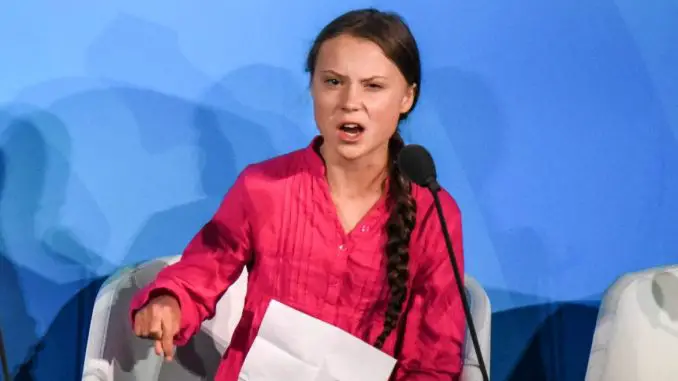
Swedish climate activist Greta Thunberg participates in the protests in Montreal, while the world’s governments will decide on the way forward for the wavering instrument that is supposed to regulate aviation emissions in the future.
At present, countries that account for 77 percent of international air routes have tentatively signed their participation in the climate control instrument Corsia.
But the instrument that, after several years of hard negotiations within the United Nations flying agency ICAO, came into place in 2016, is still faltering only years before the planned launch in 2021.
Limited to 2020 levels
Many environmental organizations see from the organization that this does not mean that emissions from the sector will reduce in practice.
The idea is that emissions will be limited at 2020 levels by the airlines then primarily compensating for climate change, and in addition, biofuels will mix.
The latter certainly contributes to lower emissions, but is considered controversial from parts of the environmental movement that fear that biofuel cultivation should expand further and push away forest and other agricultural land. Instead, they want to see, among other things, a system where emissions are priced properly.
China puts pressure: Too unfair
From countries that are currently outside, such as China, it is argued, among other things, that Corsia is unfair to developing countries. This is because they have historically contributed much less to air emissions, but now have to take equal responsibility.
The situation is politically delicate ahead of Monday’s planned negotiations. For when it is now time for the countries of the world to once again draw up the guidelines for the instrument, there will be further challenges.
The EU may lose the power to regulate emissions itself
In the proposal for political blessing presented by ICAO’s management, it is proposed that all members should support Corsia as the only means of managing CO2 emissions from international flights.
It puts the wheels in the wheel of the EU, which at the moment includes the flight within the Union in emissions trading. The European Commission wants that opportunity, but the protests have so far not been heard in the preparations for this week’s negotiations in Montreal.
The European Commission calls on EU members not to endorse the proposed political blessing at the ICAO meeting in Canada. But the opponents of that line believe that the whole of Corsia can be razed if the EU sends the signal that they doubt the international instrument and want to keep their own actions.
The Commission’s call does not seem to be followed
The EU member states are divided on this issue. Ireland, Spain, Romania, Malta and Cyprus have all expressed their desire to release the EU’s power to regulate emissions. France and Italy are also said to have opened for this. Sweden must have belonged to the twelve countries that had previously joined the Commission.
What the whole bloc thinks is unknown, because the mandate in the negotiations is secret.
In practice, the signing of the political blessing would mean that the incoming EU Commission would be bound to proceed with its own measures for international aviation.
– It is possible from a legal point of view, but politically it will be more difficult.
From the environmental organization Transport & Environment, it has been estimated that emissions from aviation alone in the EU would increase by a total of 683 million tonnes – more than Sweden’s annual emissions during the period – over the next ten years if the Union releases its own opportunities to limit emissions.
– Corsia looks more and more like a lousy agreement for the climate, comments Andrew Murphy at Transport & Environment.
Leave a Reply